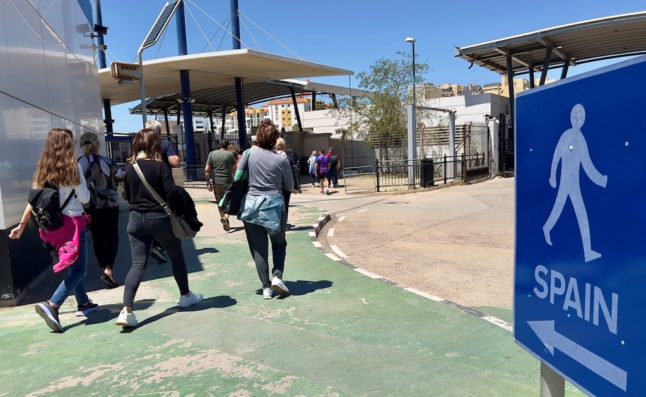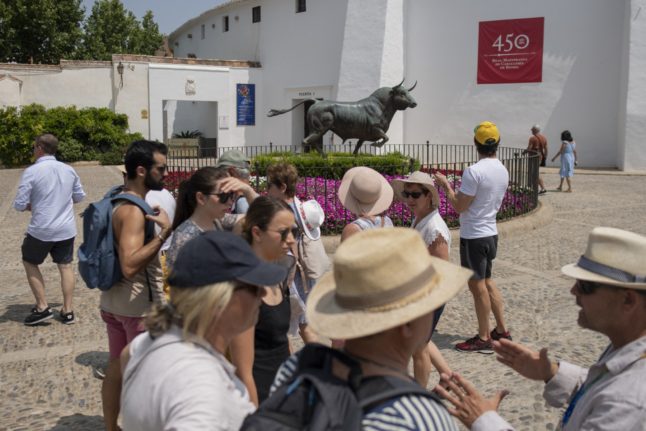Around 35 people, the majority of them UK nationals, were denied entry into Spain on November 14th when attempting to enter from Gibraltar, according to the Gibraltarian Government. A week later, there are reports of long delays for vehicles crossing the border.
Spanish authorities have stated that most were asked their reasons for travelling and denied entry because they couldn’t provide certain proof or documentation for their entry into Spain, such as hotel bookings or onward flights.
It’s not the first time that Spanish officials increase security at The Rock, as every few months there are reports of holdups and increased checks at the Spain-Gibraltar border. It isn’t always clear if it’s due to an erroneous interpretation of the rules by border officials or if it’s rather down to diplomatic pressure that Spain wants to exert on the UK and Gibraltar.
Therefore, if you’re a UK national – whether you’re a tourist, Spanish resident or Gibraltar resident – and you’re planning on travelling between Gibraltar and Spain soon, here’s what you need to make sure you don’t encounter problems at the border.
Since January 1st 2021, UK nationals, like any third-country national, have had to comply with the entry requirements set out in the Schengen Borders Code, including the need to justify the purpose of travel and conditions of their planned stay, as well as have sufficient means of supporting themselves for their stay and their return.
Their stay also cannot of course stay over 90 days in any 180 days.
READ MORE:
- Can you really ‘cheat’ the Schengen 90-day rule?
- No, Spain isn’t lobbying for 90-day rule change for Brits
The British Government website states that: “Spanish border checks can cause delays when crossing between Spain and Gibraltar”, so it’s important to leave plenty of time to be able to cross.
Passport
British people entering Spain from Gibraltar must identify themselves with a valid passport issued less than 10 years before the date they enter Spain, and valid for at least three months after the date that they plan on leaving Spain.
READ MORE: What are the reasons for being denied entry into Spain?
Additional documentation
If you enter Spain as a tourist, you may need to provide additional documents at the border, although you will not always be asked for them.
You may be asked to show:
– A valid return or onward ticket
– You have enough money for your stay
– Proof of accommodation for your stay, which could be a hotel booking confirmation, proof of address if visiting your own property or invitation or proof of address if staying with a third party, friends or family.
You may need a carta de invitación filled out by the person you’re staying with too.
READ ALSO – ‘Carta de invitación’: Why you may need to pay to have British friends and family stay with you
Residents in Spain
According to the British Government, if you are a UK national who is a resident in Spain “your passport should not be stamped when entering or leaving Spain”.
In addition to showing your passport at the border, you should provide proof of residence here, such as your TIE card (la tarjeta de identidad de extranjero).
In reality, it’s very possible that your passport will be stamped, even if you show your TIE. The are countless reports of British passport holders who are residents in Spain trying to explain to border officials that they shouldn’t be getting a stamp, but their interpretation of the rules is different and they have the final say.
In 2021, The Local Spain was contacted by a UK national who was denied entry to Spain from Gibraltar over a missing passport stamp from a previous visit, meaning she couldn’t prove she hadn’t overstayed in the Schengen Area, highlighting the issue of passport stamps for Brits travelling to the Schengen Area post-Brexit.
READ MORE:
- Briton denied entry to Spain over missing passport stamp
- Passport stamp or scan? What foreigners at Spain’s borders should expect
Gibraltar residents
Residents in Gibraltar are typically issued with various different coloured Gibraltar Civilian Registration cards.
Magenta cards are issued to British nationals, blue cards are given to EU nationals, and green cards are issued to non-EU nationals, while red ID cards are issued to Gibraltarian citizens.
Most of the people who were stopped and asked for proof of stay in Spain and denied entry were holders of the magenta ID cards.
The Borders and Coastguard Agency of Gibraltar stated: “The BCA are not aware of any British national who presented their passport and a Gibraltar red ID card, to have been asked to provide reasons for travel”.
The Gibraltar Government has stated that the existing status quo has not changed and that holders of Gibraltar red ID cards will not have to stamp their passports when crossing the border to travel within Spain, a transitional measure while negotiations between the European Commission and the UK continue.
Negotiations on a deal outlining Gibraltar’s future relationship with the EU have been ongoing for four years, and it remains to be seen if Gibraltar – a British overseas territory that voted overwhelmingly to remain in the EU by 96 percent – will have some kind of special arrangement to maintain frictionless access to the Schengen area.



 Please whitelist us to continue reading.
Please whitelist us to continue reading.
Member comments